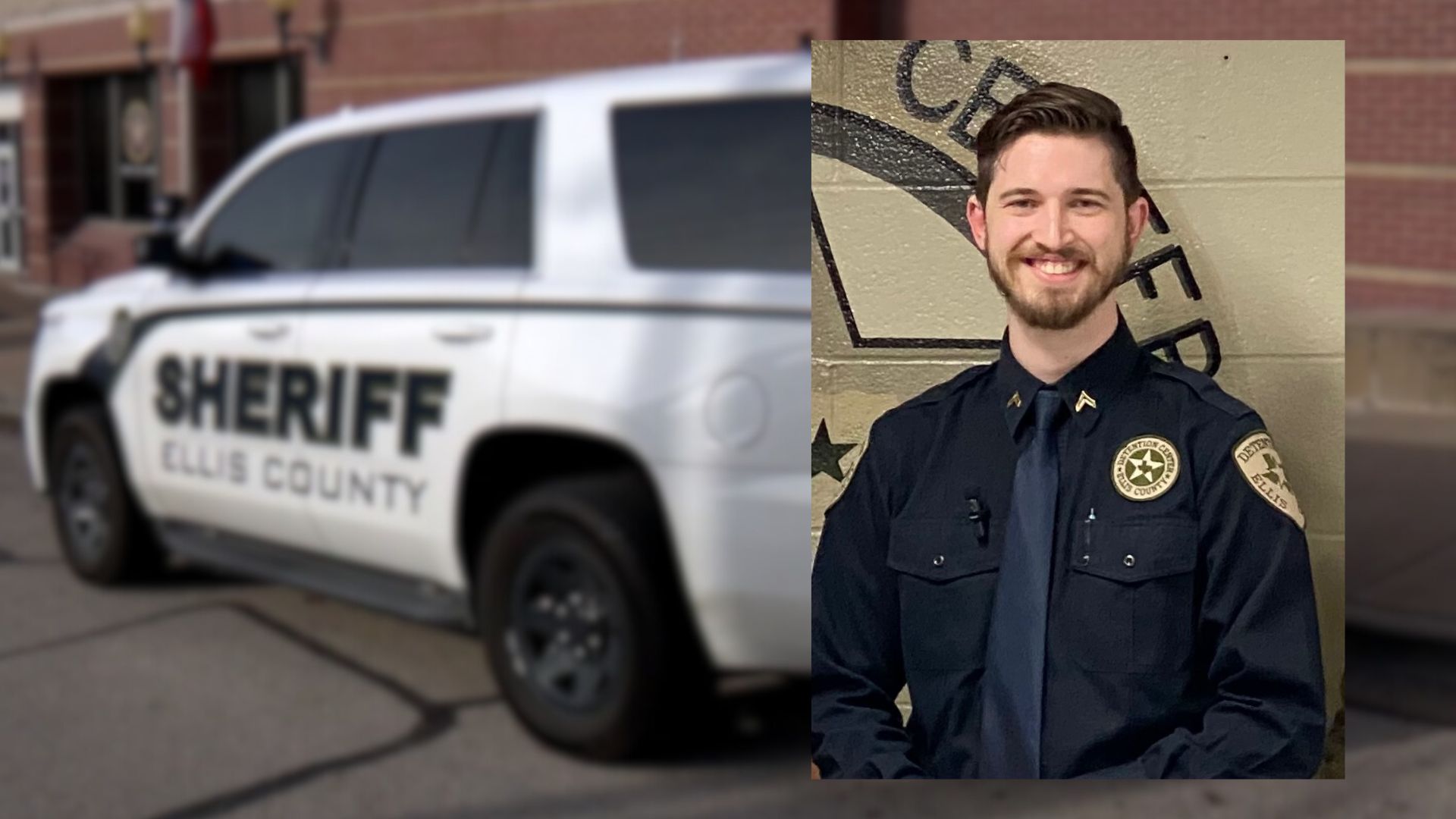It is a joint law enforcement effort not seen anywhere else in the country.
Its mission: to work across county lines and stop powerful Mexican drug cartels bound for cities across the U.S.
The North Texas Criminal Interdiction Unit consists of eight sheriff’s departments scattered across the region: Collin, Tarrant, Wise, Smith, Hunt, Parker, Rockwall, Tarrant and Grayson Counties.
They’ve joined ranks to patrol key corridors like I-35 and Highway 75 used by cartels to transport illegal narcotics, weapons, and human trafficking victims.
Get top local stories in DFW delivered to you every morning. >Sign up for NBC DFW's News Headlines newsletter.
“This is extraordinarily dangerous work. We’ve seen the cartels working in ways we’ve never seen before,” said Collin County Sheriff Jim Skinner.
Undocumented migrants are increasingly becoming victims of ‘debt bondage;’ unexpectedly extorted for thousands of dollars after despite paying a pre-determined sum to cross illegally into the U.S., he said.
These migrants are sometimes abducted and kept in stash houses or released with threats of death if they do not pay.
Local
The latest news from around North Texas.
“I’m proud to be joined with these sheriffs because we’re doing what we can to protect our citizens,” said Skinner during a press conference Tuesday morning.
The law enforcement leaders say two Mexican drug cartels, the Sinaloan and Nuevo Jalisco Nueva Generacion, are responsible for a vast majority of the criminality that flows in the U.S.
Tarrant County Sheriff Bill Waybourn, known for his hardline stance on illegal immigration, says they’re a force multiplier against the clear and present danger.
The press conference featured a rapid slideshow of photographs and dash camera videos of large busts across the eight counties, as well as a NTCIU bulletproof vest and gun holster hit by gunfire last November.
“[Our deputy] stopped a subject carrying 14 kilos of cocaine on I-30 and a firefight broke out,” said Skinner holding up the vest.
The officer did not suffer a gunshot wound and the suspect died in the incident, he said.
Skinner led the charge to form the collaborative effort and has been at the forefront of petitioning changes to state law to allow partnering agencies to send specialized deputies to each other’s counties and to allow counties to join the unit even if they do not border each other.
Noticeably absent from the participating departments are Dallas and Denton Counties.
Without naming a particular county, Waybourn responded by saying ‘several of them because of manpower, because of staffing or because of internal political issues.”
They also point to counties that may not safely participate given the amount of heavy traffic on the roadways.
NBC 5 reached out to Denton and Dallas County Sheriff’s Departments for comment but has not received a response.
The city of Dallas is described as a hub for criminals to stash and package drugs before distributing them across the state and country.
The NTXCIU is also collaborating with DFW Airport and Homeland Security to provide resources, like personnel and K9s.
“We are trying to create a gauntlet, if you will, for the cartels to get from the South to the North,” said Grayson County Sheriff Tom Watt who will soon retire from the force. “We know for a fact, once they clear the Dallas area, they’re going to Tulsa, Kansas City and up to Chicago.”
Drug runners and human traffickers, they say, are often bound for the East Coast.
The unit reports seizing $8 million of ‘dirty’ money, nearly 8,000 pounds of marijuana, 6,000 of methamphetamine, 1,000 pounds of cocaine, 365 pounds of heroin, 394 pounds of prescription narcotics, and 103 pounds of fentanyl.
The unit’s operations have also yielded 119 stolen vehicles, more than 60 weapons and ammunition and 570 felony arrests.
Waybourn says many suspects are charged with federal crimes.
Preventing fentanyl from hitting the streets is very impressive for Skinner because deaths linked to the synthetic opioid in Collin County have exploded in recent years, including 71 deaths in 2022.
“We saw [fentanyl-related deaths] reduce itself in 2023 to the number of 56,” he said. “That’s a 15 person difference.
That’s 15 lives. We attribute that to the NTXCIU because during that same time, we had a 2,000% increase in the amount of fentanyl seized in the areas patrolled by the NTXCIU.”
The unit is admittedly not zeroed in on pursuing drug users or combatting the country’s seemingly unquenchable thirst for illegal narcotics.
Waybourn said they are doing their part to stop suppliers and are ‘counting’ on cities to ‘do their part,’ and later adding each department does extensive education of the dangers of drugs, especially among the youth.
Watt argued there is also a mental health component to the user side of the conversation and says there needs to be even more resources placed on mental health for Texans struggling with addiction.
During Tuesday’s press conference, Skinner received word of an arrest made in the fentanyl-related death of a 25-year-old Blue Ridge woman.
The Collin County Sheriff’s Office, U.S. Marshal’s Joint East Texas Fugitive Task Force, and the U.S. Marshal’s North
Texas Fugitive Task Force arrested Gregory Noah Honesty, 25, in Dallas, according to the CCSO.
Honesty is charged with murder for allegedly linking him to the sale of fentanyl-laced counterfeit ‘M-30’ pills to the woman.
Texas law now allows fentanyl dealers to be charged with murder if pills they distribute lead to someone’s death.



